I hope you read my long piece last week about the error-filled bombast at The New Yorker et al that linked Francis Schaeffer and Nancy Pearcey to the discredited, fringe, off-shoot of conservative Reformed theology, called Theonomy. (The writer of said piece, a Mr. Lizza, following others, termed this Dominionism and then in other outlets seemed to implicate any Christian who wants to honor God by serving the public good with Biblically-derived ideas. Lizza has been lionized by the left and roundly rebuked by the religious.) I offered good links to a few who responded to this woefully ignorant reportage and some of my own ruminations on Schaeffer (Francis and son Frank) and Ms Pearcey, whose books we carry. We then offered a rather diverse array of books that promote further thinking and talking about all this, resources to have ready as we talk with our neighbors, write letters to the editor, start book clubs and otherwise take steps to put forward a decent, coherent and just understanding of the relationship of faith and culture, religion and the public square, church and state.
I noted that my list is diverse and valuable and a few of the titles are truly brilliant. Is there somebody you might want to forward that list to? I’m confident there are some real winners there. Maybe somebody should send some to their own local journalists. At the very least, this fine piece on anti-religious prejudices in the newsroom, thoughtful explored by journalist Rod Dreher. It is well worth reading.
THE PROBLEM HAS NOT GONE AWAY
We were a bit ahead of the curve on this most recent chapter of this frustrating story, but it has gone viral–from various quarters—and it hasn’t gone away. National news outlets and hundreds of prominent blogs, and now an insulting and sophomoric (if cleverly-written) editorial by the–oh my–Executive Editor The New York Times continue to repeat this shoddy coverage of conservative religion. (The prominent Mr. Keller says he is going to ask and then report the answers to “tough questions” about the religion of the candidates and yet he in his inaugural volley repeats like it is some big deal the publicly discredited Schaeffer-Dominionist trope.) Well, we’ve spoken about that enough for now, which leads me to this remarkable, brand new book. I’m grateful that a number of BookNotes fans posted my column–it is good to think it maybe helped a bit.
SADDENED
As I indicated in that August “monthly review column” I have been deeply saddened by this angry mocking of conservative religion and the angry push-back by conservatives and nobody, that I know of, admitting they made any errors in judgement. The ridiculous statements from the secular left are matched by hostility on the religious right. And many in the middle are muddled—maybe me, too. So much of it is heartbreaking, and I have used that word knowingly.
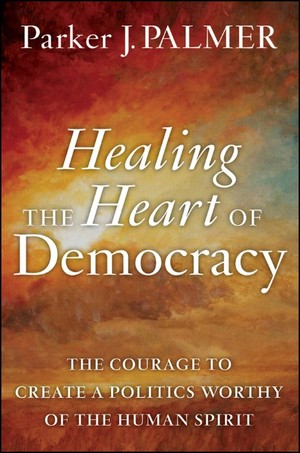 Imagine my surprise, then, when I picked up the brand new book by Parker J. Palmer, Healing the Heart of Democracy: The Courage to Create a Politics Worthy of the Human Spirit (Jossey Bass; $24.95) to find this opening line:
Imagine my surprise, then, when I picked up the brand new book by Parker J. Palmer, Healing the Heart of Democracy: The Courage to Create a Politics Worthy of the Human Spirit (Jossey Bass; $24.95) to find this opening line:
“I began this book in a season of heartbreak—personal and political heartbreak—that soon descended into a dark night of the soul.”
I read twice the wonderfully rich and tender prelude, “The Politics of the Brokenhearted” and it reminded me of an earlier piece he had written in another collection, years ago (which I will mention below) also about heartbreak and citizenship. Although Palmer started writing this book more than 8 years ago, it felt to me like it was written yesterday. I’ve had an advanced copy of this for a while, and intended to wait for the right time to pick it up; in fact, I forgot I had it. In what I assume was an act of gracious providence, I spotted it just a few days ago while looking for something else in my piles, and took it up almost immediately. It was just what I needed. And you? He says it was his hardest book to write. I think it will speak to many.
I will return to this theme of sadness, but first just a bit of background. You may or may not know about Parker Palmer’s remarkable career, his friendship with the likes of contemporary contemplatives such as Howard Thurman, Gerald May, even Thomas Merton, or his writing about the inner life, especially as it relates to daily living, public life, work, calling, careers. The Active Life: A Spirituality of Work, Creativity and Caring (Jossey-Bass; $16.95) is a masterpiece, I’d say, and not too long ago a paperback version of A Hidden Wholeness: The Journey Toward an Undivided Life (Jossey-Bass; $19.95) came out in an edition that includes a DVD. The small, handsome hardback Let Your Life Speak: Listening for the Voice of Vocation (Jossey-Bass; $18.95) is a classic.
The title of his very first book is also a phrase–“in the company of strangers”—which re-appears in this new one, and it is in some ways a revisiting of this early theme, ruminating on the interface of our deepest inner lives and our civic involvement, how we live in public amongst those that may be different than we. Indeed, this new book is explicitly calling for a “politics of the heart” and invites us to bring our deepest yearnings, emotions, insights, and values to the hard world of data and facts and reason. This is grounded in some very impressive scholarship about which he has written nicely in the past.
For instance, his famous little book on epistemology and education, To Know as We Are Known: Education as a Spiritual Journey (Harper: $13.99), reminds us that in the Bible (and other great spiritual traditions) authentic knowledge involves head and heart and hands and is always a relational matter; we “know” in ways that are more than just rational. Yada, the Hebrew word for knowing, is also the word for sexual intercourse and implies so much more than merely an Enlightenment view of mastering facts in our head—relationship, responsibility, and affection.) That wholistic view of knowing deeply–with the heart, as it were—gave rise to a particular view of education and teaching, and he then wrote about that. Palmer became justly famous for The Courage to Teach: Exploring the Inner Landscape of a Teacher’s Life, now in a 10th Anniversary edition (Jossey-Bass; $27.95.) Soon, a book followed it, a collection of serious narratives of people who nurtured learning communities of caring, inspired by the methodology and vision of Courage to Teach simply called Stories of the Courage to Teach, compiled by Sam Intrator (Jossy-Bass; $18.95.) That anthology showed that all sorts of educators–in colleges, in elementary schools, in seminaries, in prison groups, in senior centers, in doctoral programs, in adult ed study book clubs—could, in fact, teach with the heart.
CITIZENS OF HEART
Can we, as citizens, like those teachers, embrace this “hidden wholeness” in our public lives? Can we use our intuitions and feelings and values (and the heaviness of our hearts) as well as are brains to consider political proposals and work with neighbors for the betterment of our polis? Can we bring our whole hearts to the public square? 

I deeply resonate with this and while it is a different approach and vocabulary than
the historic Calvinism of Schaeffer and Pearcey of which I have written before, it seems to be a healthy next step in that conversation. With Dutch Statesman Abraham Kuyper (and Schaeffer and Pearcey) some of us want to honor Jesus Christ in every sphere of life and while we resent cheesy accusations of crusading “dominionism” we cannot privatize our faith, marginalize our convictions, give up on our desire to serve the common good by proposing what we think the Good Book has to say about our life together under the sun. Serious evangelical intellectuals have given us paradigms and methodologies of discerning how best to do this. We’ve been offered good books that have critiques of ideologies and insights about hermeneutics, ways to imagine the political implications of general Biblical truths, without overstating things and without hubris.
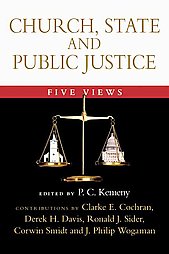 Justice: Five Views edited by P.C. Kemeny ( IVP; $19.00) which shows the general commonality of the discourse despite the very large differences of opinion. Ron Sider’s exceptionally thoughtful and thorough The Scandal of Evangelical Politics (Baker; $20.00) is another very helpful example that walks one through a set of questions in order to develop some balanced Biblical vision, from which might emerge a political philosophy, from which we might humbly propose some tentative policy points. Or visit the interesting website of the Center For Public Justice, an non-partisan, mostly Reformed think-tank and center for Christian citizenship.]
Justice: Five Views edited by P.C. Kemeny ( IVP; $19.00) which shows the general commonality of the discourse despite the very large differences of opinion. Ron Sider’s exceptionally thoughtful and thorough The Scandal of Evangelical Politics (Baker; $20.00) is another very helpful example that walks one through a set of questions in order to develop some balanced Biblical vision, from which might emerge a political philosophy, from which we might humbly propose some tentative policy points. Or visit the interesting website of the Center For Public Justice, an non-partisan, mostly Reformed think-tank and center for Christian citizenship.]
Having done this sort of intellectual work, grappling with a theological worldview and a Biblical perspective on statecraft—yes, it is what Christians do—how then do we embody that, lean into and work for it, walking into the pluralistic culture, alongside our fellow citizens in this flurry of frustration we call democracy? After the Biblical study and policy discussion, at the end of the day, don’t most people of faith–you and I—just want to serve the common good, make our towns and states and nation a bit better? To be good citizens as the Bible teaches? Love our neighbors, also in our politics? Here, Palmer’s Healing the Heart of Democracy is wise, kindly, and urgently needed because he is showing us how to reweave the tattered fabric of our communal life and how to “walk on” as part of a commonweal. He is good at this stuff, how to take next steps amidst tensions. He is gifted and experienced and truly wants to bring a variety of voices to the conversation.
HOLDING TOGETHER TENSIONS – LIVING IN CONFLICTED TIMES
One of the big points in this book is the need to hold together various tensions, to hear each other out without demonizing one another. (He tells of people coming to workshops to find common ground on abortion, even, and although it isn’t easy, such small steps are happening. Some deeply divided communities are working towards some common concerns. His reports from the field of “getting along” and “listening well” are very instructive and should make us glad.) And, be clear—he shows us not so much how to resolve conflict, but how to learn to live with our deepest differences. Our religious, cultural and political differences are not going to go away, after all.
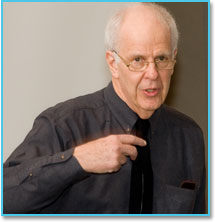 You may think that since Palmer is a kind-hearted Quaker, he tends towards sentimental ideals—“Can’t we all just get along?”—and you would be wrong. Yes, Palmer talks about the centering role of silence and solitude and has a fluency in the mystical traditions, but he is also seriously aware of the ways in which on-the-ground cultural and political differences are real, and can either be voiced in healthy ways or in destructive ways. He was an early student of the civil rights movement and was as anguished as most activists at the upheaval of the last 60s. He knows much of this in his bones and, I suspect, carries it deeply within him. Gee whiz, he even tells the story of how Martin Marty apologized for a bad review written in the Christian Century of Thomas Merton’s 1964 Seeds of Destruction when Marty thought that Merton was being needlessly flamboyant in his prediction of the racial wars to come. Who knows this kind of stuff except those who had their ear to the ground and their heart on their sleeve in those hard years?)
You may think that since Palmer is a kind-hearted Quaker, he tends towards sentimental ideals—“Can’t we all just get along?”—and you would be wrong. Yes, Palmer talks about the centering role of silence and solitude and has a fluency in the mystical traditions, but he is also seriously aware of the ways in which on-the-ground cultural and political differences are real, and can either be voiced in healthy ways or in destructive ways. He was an early student of the civil rights movement and was as anguished as most activists at the upheaval of the last 60s. He knows much of this in his bones and, I suspect, carries it deeply within him. Gee whiz, he even tells the story of how Martin Marty apologized for a bad review written in the Christian Century of Thomas Merton’s 1964 Seeds of Destruction when Marty thought that Merton was being needlessly flamboyant in his prediction of the racial wars to come. Who knows this kind of stuff except those who had their ear to the ground and their heart on their sleeve in those hard years?)
To suspect Palmer of romantic, genteel idealism is understandable—let’s face it, this is not The Art of War or a pragmatic guidebook in the spirit of Karl Rove (or Saul Alinksy, for that matter.) But Palmer is politically savvy and street smart and considerably chastened by the stuff he has seen while pondering, acting and mentoring public figures over most of his lifetime. A few of the great stories in Healing the Heart… are about political activists, legislators, people in positions of influence, as they struggle to follow their hearts, living out their deepest beliefs in their offices.
As an organizer and advocate for social change Palmer is not unrealistic when he reminds us that good conversation, art and poetry and empowering education can help us. (He is, more than anything, a teacher, after all.) The right art and practicing attentiveness to it helps us become people who are deeper, who can host differences, live into tensions and conflict, and be decent with others, showing hope and grace and goodness. This “liberal arts” view is not silliness, not at all. And to bring such art and poetry into our own interior selves, well this is transformative. This focus on the heart, and being in touch with our sadnesses, is not poppycock. Palmer argues here that it is essential work not just for personal wholeness and health, but for serious citizenship.
HABITS OF THE HEART — AT THE LOCAL LEVEL
No it is not poppycock or sentimentalism. After all, it was the famous French scholar Alexis de Tocqueville (who Palmer cites often) who coined the phrase “habits of heart” and insisted that Americans need some way to keep these character traits of virtue alive if democracy is to survive. Palmer’s wide-ranging study shows how our habits of heart might be more intentionally nurtured in order to fund a robust, fair-minded, and truly effective local civic life.
The notion of a “local” “civic” life–civil society, mediating structures, third places and such–is not new but Palmer explores it here as nicely as in anything I’ve read in recent years. He extols third places, invites us to think about the “pre-political” and promotes the development of trust-building dialogue groups. (My friend Steve Garber of the Washington Institute on Faith, Vocation, Culture, who hosts discussions about living passionately as Christians in various career areas in what he calls Vocare groups, creates space for what he terms “conversations of consequence.”) Palmer says such meaningful conversations happen best in “circles of trust” and then surprised me with a funny footnote about the Robert DeNiro character in Meet the Parents.) Interestingly, he even has a section about how trust-building citizenship enhancing communities can form even on line. The dude is ov
er 70 and affirms ways our social medias can help create healthy civic discourse!
DEEPENING THE AMERICAN DREAM
I noted that Palmer started his career thinking about public life. Indeed, I have a series of papers he wrote about how higher education might speak to the cultural crisis of the early 70s, published by the National Council of Churches, and an early book of his was about civic life. He then became known in education, wrote a book on calling (inspired by his sense that the best teachers worked from their heart because they viewed their jobs as a holy vocation.) He has written several books about spirituality, contemplation in a world of action. Last year he won the prestigious William Rainey Harper Award (that has previously been awarded to Margaret Mead, Paulo Freire and Elie Wiesel.) Earlier this year he co-authored a book on how college life might be enhanced through “collegial conversations.”
As writer and “public intellectual” Palmer has never been far from politics, though, and has recently been behind the scenes networking people to ask big questions about our own dreams for a new politics, finding common ground, talking genuinely about our differences. He has helped organize a couple of conferences on this topic through his work as Senior Partner of the Center for Courage and Renewal.
We had the wonderful opportunity to sell books for him at a very lovely gathering a few years ago (at the prestigious National Press Club in Washington DC) that included a number of excellent speakers, addressing these exact themes. (One of the highlights of that event was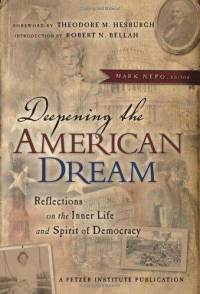 meeting Vincent Harding!) That conference actually celebrated a book edited by Palmer’s friend, Mark Nepo entitled Deepening the American Dream: Reflections on the Inner Life and Spirit of Democracy (Jossey-Bass; $24.95.) Some of the distinguished authors in that good volume include Gerald May, Jacob Needleman, Elaine Pagels, Robert Inchausti and Robert Bellah. What Palmer introduced in his important essay in that collection, the one about a politics of the broken heart, comes to full flower here. That anthology was important but this new book will truly help us reconnect who we are with what we do, and how we do it— yes, even in these heartbreaking times of culture wars, loud accusations, and divergent worldviews clashing in the public square.
meeting Vincent Harding!) That conference actually celebrated a book edited by Palmer’s friend, Mark Nepo entitled Deepening the American Dream: Reflections on the Inner Life and Spirit of Democracy (Jossey-Bass; $24.95.) Some of the distinguished authors in that good volume include Gerald May, Jacob Needleman, Elaine Pagels, Robert Inchausti and Robert Bellah. What Palmer introduced in his important essay in that collection, the one about a politics of the broken heart, comes to full flower here. That anthology was important but this new book will truly help us reconnect who we are with what we do, and how we do it— yes, even in these heartbreaking times of culture wars, loud accusations, and divergent worldviews clashing in the public square.
I like how Mr. Palmer describes democracy as having an “ecosystem” and he describes it in suggestive ways that made me think. One chapter is called “The Loom of Democracy” and in another chapter he has a sub-heading “The Promise of Neighborhoods” with both images indicating his concrete vision, his down-to-earth hope that we will be busy, doing the work of citizenship, day by day. This truly gets beyond the most obvious partisan distinctions—he celebrates the “little platoons” of Edmund Burke and invites us to resist the “decline in public life” by banding together with friends to be more involved in local happenings. His citations of Bill Moyers, and Robert Putnam, poets Walt Whitman and Emily Dickinson, or social critics like E.F. Schumacher, may appeal to those who slide towards the political left but his extensive use of Abraham Lincoln may make allow this book to become a considered recommendation for conservatives, as well.
LINCOLN’S MELANCHOLY
It is commonly agreed that in the Second Inaugural address Lincoln invited us to some of the most generous and profound ideals, delivered in some of the grandest eloquence, in our nation’s history so this isn’t anything to roll one’s eyes about–it is wonderful primary source stuff he is citing, substantive and momentous. (He cites some other, lesser known Lincoln speeches as well to wonderful effect.) Palmer plumbs this material well and it is more than inspiring, it is a clarion call to renounce our current culture wars and incivility and with great intentionality, to forge a better way.


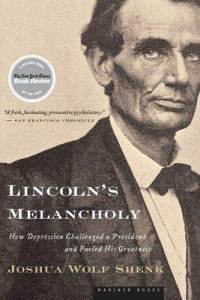 It is not just a matter of passing interest (although it is very interesting) that Palmer draws significantly on the award winning study of Lincoln’s depression, Joshua Shenk’s Lincoln’s Melancholy: How Depression Challenged a President and Fueled His Greatness (Marainer; $14.95.) Mr. Palmer takes heart that this sad, great man was able to so ably lead our broken nation. This is a key to the book: it is our broken-heartedness that we must bring to the table. We must do inner work to be in touch with our disappointments and pains, and such self-awareness can drive us to honor the disappointments in others. As we tend to the heart of the matter, often the broken heart of the matter, we will be more humane, more kindly, more insightful, and more resolved to do the good work of building civic community, long before we enter the contentious field of partisan elections or policy disputes. As in his other books he draws a fairly direct line from “inner liberation to outward transformation.”
It is not just a matter of passing interest (although it is very interesting) that Palmer draws significantly on the award winning study of Lincoln’s depression, Joshua Shenk’s Lincoln’s Melancholy: How Depression Challenged a President and Fueled His Greatness (Marainer; $14.95.) Mr. Palmer takes heart that this sad, great man was able to so ably lead our broken nation. This is a key to the book: it is our broken-heartedness that we must bring to the table. We must do inner work to be in touch with our disappointments and pains, and such self-awareness can drive us to honor the disappointments in others. As we tend to the heart of the matter, often the broken heart of the matter, we will be more humane, more kindly, more insightful, and more resolved to do the good work of building civic community, long before we enter the contentious field of partisan elections or policy disputes. As in his other books he draws a fairly direct line from “inner liberation to outward transformation.”
As I write about this here it sounds nearly like shallow psycho-babble, new-agey pablum, but Mr. Palmer is too astute to allow for cheap solutions. If you are inclined to psychological language, I suppose you will love this book. Few have brought the psychology and interior lives of our selves and our neighbors into the public arena quite so well. However, please do not let any presumption that this is silly or mystical dissuade you from getting this book. Business writer Peter Block calls it “fiercely realistic.” Again, he is drawing on Abraham Lincoln. He quotes Reinhold Niebuhr’s The Irony of American History published by University of Chicago Press, for heaven’s sake.
The subtitle of this work is important. Palmer invites us to summon “the courage to create a politics worthy of the human spirit.” He believes this happens, mostly, as I’ve suggested, at the local, “pre-political” level, and it does, in fact, demand courage. It is not a small matter to be in touch with our own fears and foibles and to be gracious about them as they appear in our fellows. Good citizenship, though, demands that we listen to our hearts, and listen to the hearts of our neighbors. Not only does this take exacting inner disciplines, but it demands a sense of place. We must listen to our neighbors, our neighborhoods, our land. We need a multi-faceted, perhaps less dramatic, view of our civic involvement. Being a good citizen includes so much more than merely showing up to vote every so many years or sending off an electronic petition. We must be invested in the real, human infrastructure, care about the membership of the commonwealth. Does it surprise you that Mr. Palmer quotes the farmer poet from Kentucky?
Palmer tells many great stories throughout the book. It is not mysterious or recondite but when it even verges on sliding into an overly abstract view, he reminds us of our common ground as humans by telling a good story. And the stories are often fabulously inspiring. A few are fairly mundane, and they are as good as the ones, say, from the civil rights movement, that are more dramatic.
(Ahh, the story he tells of why an African American Sunday school class at Koinonia Farms used Roberts Rules of Order is so illuminating!)

Healing the Heart of Democracy by Parker Palmer is a book about good folk who care to be in touch with what they most surely know, from paying attention to their wounds, their fears, their places, their community (or lack of community.) And who care to know how to talk about that with others, who, carrying their own hurts and needs and fears, may have very different values and proposals, with both sides fearful and angry with each other. This is not easy work and it doesn’t lead to simple answers. We need to tell our stories, but that is only the beginning; we live in a harsh world of power and money and injustice and duplicity and he knows it. Such “heart work” is, nonetheless, the only hope for sustainable steps forward for our civil union. To help us get there he offers a brief “theology of hospitality.”
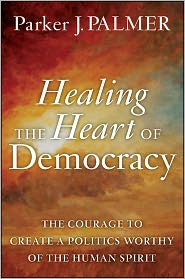 Healing… is a book for our times, needed always, I suppose, but certainly now. (Yes, certainly, this very week!) It is a book local groups should read, study, talk about. It has at times a tone of spirituality and of course talks about the heart, the core of our being, our deepest sense of our identity and such but it is not sectarian and could be shared with nearly anyone. His anecdotes and stories tend often to arise from progressive movements for social change (like the Highlander School who taught Rosa Parks and countless others in civil rights organizing) and he tells examples of community organizers, those working with the disenfranchised, or farmers resisting the lures of agribusiness. These are worthy of great consideration and I hope that no one is turned off by his tendency to hold up such remarkable examples.
Healing… is a book for our times, needed always, I suppose, but certainly now. (Yes, certainly, this very week!) It is a book local groups should read, study, talk about. It has at times a tone of spirituality and of course talks about the heart, the core of our being, our deepest sense of our identity and such but it is not sectarian and could be shared with nearly anyone. His anecdotes and stories tend often to arise from progressive movements for social change (like the Highlander School who taught Rosa Parks and countless others in civil rights organizing) and he tells examples of community organizers, those working with the disenfranchised, or farmers resisting the lures of agribusiness. These are worthy of great consideration and I hope that no one is turned off by his tendency to hold up such remarkable examples.
Yet, clearly, again, this is not about how to work for the Democratic party or some lefty progressive faith movement and he is as even-handed as he can be. This is about democracy. It is about America. It is about the real tensions of our current civic lives and the need for new approaches—literally newly found places (he even mentions malls)—to make democracy work at a local level. It is about reclaiming safe public space for democratic conversations of consequence.
It is practical, but it is not a handbook; there is no blueprint. It is a reflection, a call, a rumination. And at times it is truly wondrous. the
For instance, he writes,
America’s founders realized that generation after generation of citizens would need to stay in the action lest the political movement they planted whither and die. So they built opportunities for continual renewal into democracy’s infrastructure… As the journalist Jon Meachum observed in his review of Joseph Ellis’s American Creation
How to live in a tragic milieu and yet strive toward triumph….was a consuming concern for the founders, who, led by James Madison, made a virtue of creating competing centers of power within the constitutional structure… To transform disagreement from a natural source of strife into a source of stability was a crucial insight, and is arguably the great achievement of the Constitution. What frustrates the passionate about America—its creaky checks and balances, diffuse sovereignties and general aversion to sudden change—is, Ellis argues, what makes possible the triumphs we do manage to pull off.
BROKEN-OPEN HEART AND SLOW POLITICS
Can we pull it off, some slow, small triumph of democracy working? Again, Palmer says that he wrote this book in a time of sadness and that our own wounds might be that while will help us get beyond hurt and fear. I think of the famous text in Jeremiah that says our own shalom might come when we give ourselves to our political enemies; in their blessedness (which we are told to seek) we find our own blessedness. That comes close to what this book is about: our own hurts might be healed even as we are honest about them, thereby opening the possibility of attending to the foibles of another.
Palmer puts it better than I can, and reminds us that talk of such “politics of the broken-hearted” has been heard before. He writes,
The broken-open heart is a source of power as well as compassion—the power to bring down whatever diminishes us and raise up whatever serves us well. We can access and deploy that power by doing what every great social movement has done: put time, skill, and energy into the education and mobilization of the power of the heart. As history consistently demonstrates, heart talk can yield actions just as practical as those driven by conventional forms of power.


I know this sounds a bit mushy. For some of our readers, it sounds a lot mushy! I think it is fascinating how he explains the differences between a heart that is broken with some proper attention and good grief and thereby broken open (ahh, I think of that line in Bruce Cockburn’s Last Night of the World) and a heart that is shattered, which does not allow for greater awareness or compassion or understanding.
Palmer maintains that “the heart has always been a driver of politics, a source of inner power that gets harnessed for ends that range from good to evil. That power is amplified and released through the experience of heartbreak. But the kind of power generated depends on how the heart breaks—and the elasticity that allows it to break open instead of apart comes only through the exercise of democratic habits of the heart.”
Again, he is drawing on Tocqueville insisting that this attention to our formation of habits of citizenship create the “inward and invisible infrastructure of democracy.” In a few specific chapters he shows where and how that can happen in places such as schools colleges, and universities, classrooms and congregations. (He even happily commends author appearances and book studies are neighborhood bookstores!) As I’ve noted, he affirms spaces with small face-to-face circles, but he also has come to explore certain forms of virtual communities as well. These human scale settings can “resist the deformation of the mass media” and allow us to “find the sense of voice and agency that citizenship requires.”


The voice and agency that citizenship requires. Can we find this, in humility and common grace? Even in these polarized times, where most of us have some frustrations with others, some of us with huge resentments, many of increasingly falling into the habits of caricaturing our opponents, never giving others the benefit of the doubt, presuming the worst of those with whom we disagree, we must learn to ask ourselves why we are this way. Can we summon what Lincoln on March 4th 1861 called “our better angels”?
As Palmer reminds us,
Palmer reminds us,
At the moment Lincoln spoke, with the nation on the brink of such massive violence, his hopeful words about “angels” must have seemed like a futile gesture, and a p
itiful one at that, a thimbleful of oil tossed onto a raging sea in the vain hope of calming it. Still, it was exactly the kind of moment—a moment of hopelessness that presaged many more of the same—when only hope deeply rooted in a broken-open heart can see us through.
Parker Palmer then quotes Lincoln himself, in the glorious passage from which the famous phrase comes:

We are not enemies, but friends. We must not be enemies. Through passion may have strained it must not break our bonds of affection. The mystic chords of memory, stretching from every battlefield and patriot grave to every living heart and hearthstone all over this broad land, will yet swell the chorus of the Union, when again touched, as surely they will be, by the better angels of our nature.
BookNotes
SPECIAL
DISCOUNT
– any book mentioned –
20% off
order here
takes you to the secure Hearts & Minds order form page
inquire here
if you have questions or need more informationHearts & Minds 234 East Main Street Dallastown, PA 17313 717-246-3333

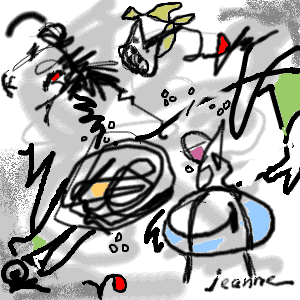
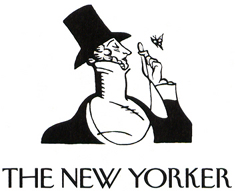 story about Republican candidate Michelle Bachmann, wrongfully linked Francis Schaeffer, a hero of mine whose books and ministry influenced me immensely, and Nancy Pearcey, a friend of mine whose books I admire, to a fringe and weird group called the Theonomists; the author of the piece called the “Dominionists” which is another phrase some use, although not what the Theonomists call themselves.) Yes, that’s the odd ball movement founded by R. Rousas J. Rushdoony, wanting to “reconstruct” American life–well, maybe not now, but someday, maybe–around the principles of the Old Testament civil codes. Nobody takes them seriously, but a dozen major media outlets passed on this stupid trope that Schaeffer and Pearcey were part of that. It went viral and hundreds of mostly left-wing bloggers were all exclaiming about these horrid folks advocating violent take-over of the government. NPR then interviews Mr. Lizza, the author of the piece and he dug himself deeper, suggesting that it is unacceptable for people of religious convictions to allow their faith to shape their public lives. Keep it in the church, folks. (You can read it yourself; I’ve got the link at the column.) Misquotes and distortions abounded about Schaeffer and Pearcey, again. I swam into it a bit, offering comments there and there. It wasn’t pretty. Joe Carter at First Things called ’em out and it is tart and right. You’ve got to read his two piece, so I give ya the links.
story about Republican candidate Michelle Bachmann, wrongfully linked Francis Schaeffer, a hero of mine whose books and ministry influenced me immensely, and Nancy Pearcey, a friend of mine whose books I admire, to a fringe and weird group called the Theonomists; the author of the piece called the “Dominionists” which is another phrase some use, although not what the Theonomists call themselves.) Yes, that’s the odd ball movement founded by R. Rousas J. Rushdoony, wanting to “reconstruct” American life–well, maybe not now, but someday, maybe–around the principles of the Old Testament civil codes. Nobody takes them seriously, but a dozen major media outlets passed on this stupid trope that Schaeffer and Pearcey were part of that. It went viral and hundreds of mostly left-wing bloggers were all exclaiming about these horrid folks advocating violent take-over of the government. NPR then interviews Mr. Lizza, the author of the piece and he dug himself deeper, suggesting that it is unacceptable for people of religious convictions to allow their faith to shape their public lives. Keep it in the church, folks. (You can read it yourself; I’ve got the link at the column.) Misquotes and distortions abounded about Schaeffer and Pearcey, again. I swam into it a bit, offering comments there and there. It wasn’t pretty. Joe Carter at First Things called ’em out and it is tart and right. You’ve got to read his two piece, so I give ya the links. 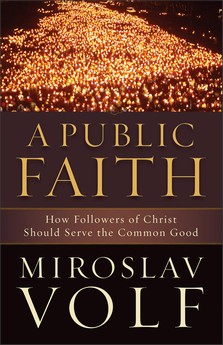 Sure, I explain plenty about Schaeffer and Pearcey but I also highlight titles that will help us navigate these culture wars waters in the months to come, and I’m not just trying to be clever, pushing Kauffman and the weird new thesis of D. G. Hart on why evangelical conservatives are really not conservatives. This is urgent, important stuff. We really need books like the new Miroslov Volf , A Public Faith published by Brazos, and books like A Purple State of Mind by Craig Detweiler (Harvest House.) I suppose it will come as no surprise that I again recommend Os Guinness’ rumination on the first amendment in his splendid and nicely written Call to Civility: And Why Our Future Depends on It (HarperOne) a book that I think is really helpful as we talk about faith, the separation of church and state and all that. For the journalists who don’t know what their talking about I list a very helpful survey edited by Hall of how Calvinism influenced Western culture; that’s a great book, too. And I celebrate a really interesting new memoir about a child raised in the rigors of an activist religious right family. It’s called Raised Right by Alisa Harris and will be released in a few weeks. It is amazing and very enjoyable.
Sure, I explain plenty about Schaeffer and Pearcey but I also highlight titles that will help us navigate these culture wars waters in the months to come, and I’m not just trying to be clever, pushing Kauffman and the weird new thesis of D. G. Hart on why evangelical conservatives are really not conservatives. This is urgent, important stuff. We really need books like the new Miroslov Volf , A Public Faith published by Brazos, and books like A Purple State of Mind by Craig Detweiler (Harvest House.) I suppose it will come as no surprise that I again recommend Os Guinness’ rumination on the first amendment in his splendid and nicely written Call to Civility: And Why Our Future Depends on It (HarperOne) a book that I think is really helpful as we talk about faith, the separation of church and state and all that. For the journalists who don’t know what their talking about I list a very helpful survey edited by Hall of how Calvinism influenced Western culture; that’s a great book, too. And I celebrate a really interesting new memoir about a child raised in the rigors of an activist religious right family. It’s called Raised Right by Alisa Harris and will be released in a few weeks. It is amazing and very enjoyable.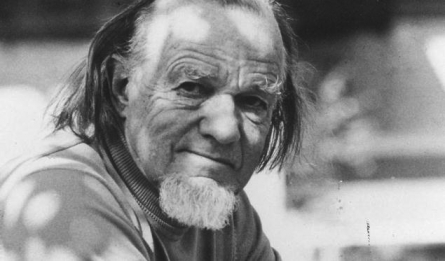 When I worked in campus ministry in the 1970s I showed the documentary that Bachmann says that she saw, the ten-part film series How Should We Then Live?, and I showed it more than once. (We still sell the DVD— here is a sample of part of
When I worked in campus ministry in the 1970s I showed the documentary that Bachmann says that she saw, the ten-part film series How Should We Then Live?, and I showed it more than once. (We still sell the DVD— here is a sample of part of  I was glad to see Nancy Pearcey reply to the accusations about her and I linked at my own facebook to the important explanation of worldviews offered by her at Human Events. Her essay is called
I was glad to see Nancy Pearcey reply to the accusations about her and I linked at my own facebook to the important explanation of worldviews offered by her at Human Events. Her essay is called 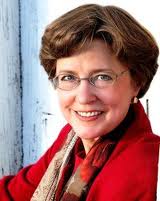 disturbing things about her views. Heck, I feel badly since we carry her books. If they said that stuff, we wouldn’t promote them, that’s for sure. One person, well intended I’m sure, reminded us of Jesus’ own command to rejoice when people say bad things about you, but I somehow couldn’t muster the faith or attitude. I care about what people think about the vision we share here, the books we carry, the God who we try to represent and glorify. I hate it when people are accused falsely, whether it is some of the far right saying scandalous things about Obama or whether it is the mainstream media saying unfair things about Schaeffer and Pearcey.
disturbing things about her views. Heck, I feel badly since we carry her books. If they said that stuff, we wouldn’t promote them, that’s for sure. One person, well intended I’m sure, reminded us of Jesus’ own command to rejoice when people say bad things about you, but I somehow couldn’t muster the faith or attitude. I care about what people think about the vision we share here, the books we carry, the God who we try to represent and glorify. I hate it when people are accused falsely, whether it is some of the far right saying scandalous things about Obama or whether it is the mainstream media saying unfair things about Schaeffer and Pearcey.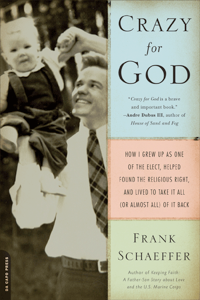 Frank Schaeffer has told that story, embellishing it a bit, I gather, in the controversial memoir Crazy for God:
Frank Schaeffer has told that story, embellishing it a bit, I gather, in the controversial memoir Crazy for God: 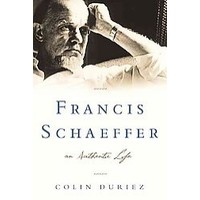 For those wanting a more traditional biography of Francis Schaeffer, the one by Colin Duriez, Francis Schaeffer: An Authentic Life (Crossway; $24.99) is the best at this point. It is just fantastic and is applauded by many who were there! Kudos.
For those wanting a more traditional biography of Francis Schaeffer, the one by Colin Duriez, Francis Schaeffer: An Authentic Life (Crossway; $24.99) is the best at this point. It is just fantastic and is applauded by many who were there! Kudos. 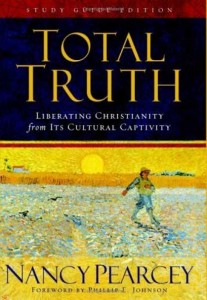 It is obvious to anyone who has read Ms Pearcey that she is one of today’s most able interpreter of the philosophical views of Mr. Schaeffer, channeling influences from Herman Dooyeweerd to Cornelius Van Til to Michael Polanyi offering a new voice for his old perspective. She hammers the fact-value dichotomy, what Schaeffer called the “upper story and lower story” views of truth, and she shows how this simple commitment to a robust view of truth effects everything. It is no news that she favors a serious and open-minded deconstruction of the orthodoxies of old school Darwinism, a matter which she explores even in her firs
It is obvious to anyone who has read Ms Pearcey that she is one of today’s most able interpreter of the philosophical views of Mr. Schaeffer, channeling influences from Herman Dooyeweerd to Cornelius Van Til to Michael Polanyi offering a new voice for his old perspective. She hammers the fact-value dichotomy, what Schaeffer called the “upper story and lower story” views of truth, and she shows how this simple commitment to a robust view of truth effects everything. It is no news that she favors a serious and open-minded deconstruction of the orthodoxies of old school Darwinism, a matter which she explores even in her firs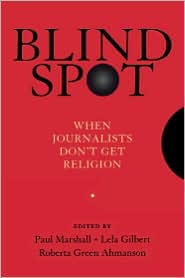 Blind Spot: When Journal
Blind Spot: When Journal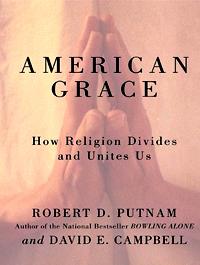 American Grace: How Religion Divides and Unites Us Robert Putnam and David Campbell (Simon & Schuster) $30.00 This thick tome of social science by the respected author of Bowling Alone may just be one of the most important books of recent years, a monumental work, elegant, descriptive and exceptionally insightful. I reviewed it briefly when it came out nearly a year ago, cribbing from the rave reviews from Doris Kearns Goodwin, Jon Meacham, Cornel West, and others. Rabbi Eric H. Yoffie (The President of Union for Reform Judaism) says that “this is the best overview of American religion in the last half of the twentieth century that I have ever read. If you care about American religion, you must read this book.” Religion matters, in private and in public. It isn’t coming out in paperback until February 2012 and it may be too important to wait. Highly recommended.
American Grace: How Religion Divides and Unites Us Robert Putnam and David Campbell (Simon & Schuster) $30.00 This thick tome of social science by the respected author of Bowling Alone may just be one of the most important books of recent years, a monumental work, elegant, descriptive and exceptionally insightful. I reviewed it briefly when it came out nearly a year ago, cribbing from the rave reviews from Doris Kearns Goodwin, Jon Meacham, Cornel West, and others. Rabbi Eric H. Yoffie (The President of Union for Reform Judaism) says that “this is the best overview of American religion in the last half of the twentieth century that I have ever read. If you care about American religion, you must read this book.” Religion matters, in private and in public. It isn’t coming out in paperback until February 2012 and it may be too important to wait. Highly recommended. 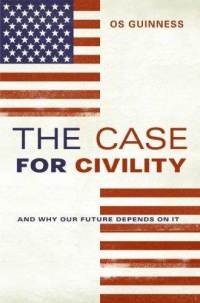 The Case for Civility: And Why Our Future Depends on It Os Guiness (HarperOne) $23.95 I reviewed this when it came out, declaring my huge appreciation for it, and have mentioned it time and again. One needn’t agree with all the proposals but it is a must-read for anyone interested in conversations about church and state, faith in public life, and the like. This is not just about public manners or civil etiquette—which itself would be helpful, but not quite the full point of this volume— but Guinness here explores how the first amendment offers a framework for freedom for and from religion. We must not move towards any God-based Theonomy or any kind of state church, of course. But a “naked public square” that privileges secularism is equally faulty. This “case” challenges the religious right and the secular left calling us all to take steps to solve the impasse of of our times through what he wonderfully explains in vigorous and inspiring prose as a “cosmopolitan public square.” I do hope you consider reading this and living out his important vision and urgent call to decency, civility, and, urgently, a robust commitment to the principles of our First Amendment.
The Case for Civility: And Why Our Future Depends on It Os Guiness (HarperOne) $23.95 I reviewed this when it came out, declaring my huge appreciation for it, and have mentioned it time and again. One needn’t agree with all the proposals but it is a must-read for anyone interested in conversations about church and state, faith in public life, and the like. This is not just about public manners or civil etiquette—which itself would be helpful, but not quite the full point of this volume— but Guinness here explores how the first amendment offers a framework for freedom for and from religion. We must not move towards any God-based Theonomy or any kind of state church, of course. But a “naked public square” that privileges secularism is equally faulty. This “case” challenges the religious right and the secular left calling us all to take steps to solve the impasse of of our times through what he wonderfully explains in vigorous and inspiring prose as a “cosmopolitan public square.” I do hope you consider reading this and living out his important vision and urgent call to decency, civility, and, urgently, a robust commitment to the principles of our First Amendment. 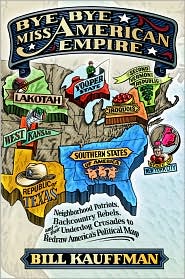 Bye Bye Miss American Empire: Neighborhood Patriots, Backcountry Rebels, and Their Underdog Crusades to Redraw America’s Political Map Bill Kauffman (Chelsea Green) $17.95 I gladly named this as one of the best books of 2010 and couldn’t stop telling interested folks (and, well, some who weren’t so interested) about this cool and remarkably intricate history of parts of the country that want to secede from the union. Weird, I know, but bear with me–this is a fabulous read. Look, I don’t know what I think about all this but I do like the quote from the Guinness book, spoken by JFK years ago. Our democratic witness should “make the world safe for diversity.” Want diversity? Really? Want to hear the people–real people? Listen to the crazy folk from the Yooper State, the Lakotah Nation, the Second Vermont Republic, The Republic of West Kansas. Did you know about the State of Jefferson? Take a stroll with Kauffman through the deep South hearing out those–including blacks!—who just want to hold on to their own unique barbequing culture. Listen to the longings for liberation of some from places like Hawaii, who wonder why the US colonized them in the first place. These backyard anarchists, localist yahoos and populists against Empire sometimes heroically want self-rule. Some just want to be left alone. Some are sorta nutty. Is this a great country, or what? I’d vote for Bill Kauffman for President if he’d run, but I can tell ya now that he ain’t. He’s too busy in his own home town, coaching Little League and fighting WalMart. Read his story about leaving Washington activism for his own front porch and his own home town in the wonderful memoir Dispatches from the Muckdog Gazette: An Affectionate Account A Small Town’s Fight to Survive (Picador; $14.00.) Kauffman knows more about American history, I’d bet, than anybody you’ve ever met and probably more than almost anybody you’ve ever read. And he’s fun: he’s so far to the left he’s right. Or so far to the right, he’s left. Anybody who wants to understand America–that is, her people—heck, anybody who likes the History Channel’s How The States Got Their Shapes—ought to read through this amazingly rich ride full of very long sentences through the backcountry of the U S of A. The Republic of Texas? Why not? Seriously.
Bye Bye Miss American Empire: Neighborhood Patriots, Backcountry Rebels, and Their Underdog Crusades to Redraw America’s Political Map Bill Kauffman (Chelsea Green) $17.95 I gladly named this as one of the best books of 2010 and couldn’t stop telling interested folks (and, well, some who weren’t so interested) about this cool and remarkably intricate history of parts of the country that want to secede from the union. Weird, I know, but bear with me–this is a fabulous read. Look, I don’t know what I think about all this but I do like the quote from the Guinness book, spoken by JFK years ago. Our democratic witness should “make the world safe for diversity.” Want diversity? Really? Want to hear the people–real people? Listen to the crazy folk from the Yooper State, the Lakotah Nation, the Second Vermont Republic, The Republic of West Kansas. Did you know about the State of Jefferson? Take a stroll with Kauffman through the deep South hearing out those–including blacks!—who just want to hold on to their own unique barbequing culture. Listen to the longings for liberation of some from places like Hawaii, who wonder why the US colonized them in the first place. These backyard anarchists, localist yahoos and populists against Empire sometimes heroically want self-rule. Some just want to be left alone. Some are sorta nutty. Is this a great country, or what? I’d vote for Bill Kauffman for President if he’d run, but I can tell ya now that he ain’t. He’s too busy in his own home town, coaching Little League and fighting WalMart. Read his story about leaving Washington activism for his own front porch and his own home town in the wonderful memoir Dispatches from the Muckdog Gazette: An Affectionate Account A Small Town’s Fight to Survive (Picador; $14.00.) Kauffman knows more about American history, I’d bet, than anybody you’ve ever met and probably more than almost anybody you’ve ever read. And he’s fun: he’s so far to the left he’s right. Or so far to the right, he’s left. Anybody who wants to understand America–that is, her people—heck, anybody who likes the History Channel’s How The States Got Their Shapes—ought to read through this amazingly rich ride full of very long sentences through the backcountry of the U S of A. The Republic of Texas? Why not? Seriously.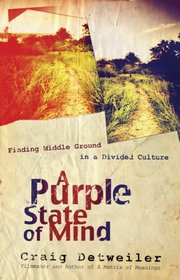 A Purple State of Mind: Finding Middle Ground in a Divided Culture Craig Detweiler Harvest House) $13.99 Not up for the wild ride against Empire and into the localist’s dreams, narrated by history geek Bill Kauffman? Fair enough, he’s an acquired taste. This is a more simple book, excellent in many ways, by an astute cultural critic (film scholar, too) and PhD who taught at Fuller Theological Seminary and now is at Pepperdine. This upbeat call to move past the culture wars—purple is a blend of red and blue, of course—was somewhat inspired as an old college friend of the author’s (a guy who helped him cross the line of faith and become a follower of Jesus) who renounced his own faith and wrote a book against the Christian right. Detweiler sees himself as a purple Christian, conservative on some things, liberal on some things, traditionalist in a good way, but progressive at times, too. Yet, A Purple State of Mind isn’t even about politics as such, but is interested in an “in but not of” the world wise and discerning Christian cultural engagement. It explains why followers of Jesus must offer a view of life that is grace-filled and, while Biblically-grounded, anything but judgmental. Is all about Jesus, less about religion. It celebrates love and joy but also faces disappointments, and is honest about life and life’s struggles. Such a view wants to hear the story of others, wants to build bridges. This sort of purple view tries to embody the love of God but avoids evangelical cliches, encourages creativity and the arts but yet isn’t disi
A Purple State of Mind: Finding Middle Ground in a Divided Culture Craig Detweiler Harvest House) $13.99 Not up for the wild ride against Empire and into the localist’s dreams, narrated by history geek Bill Kauffman? Fair enough, he’s an acquired taste. This is a more simple book, excellent in many ways, by an astute cultural critic (film scholar, too) and PhD who taught at Fuller Theological Seminary and now is at Pepperdine. This upbeat call to move past the culture wars—purple is a blend of red and blue, of course—was somewhat inspired as an old college friend of the author’s (a guy who helped him cross the line of faith and become a follower of Jesus) who renounced his own faith and wrote a book against the Christian right. Detweiler sees himself as a purple Christian, conservative on some things, liberal on some things, traditionalist in a good way, but progressive at times, too. Yet, A Purple State of Mind isn’t even about politics as such, but is interested in an “in but not of” the world wise and discerning Christian cultural engagement. It explains why followers of Jesus must offer a view of life that is grace-filled and, while Biblically-grounded, anything but judgmental. Is all about Jesus, less about religion. It celebrates love and joy but also faces disappointments, and is honest about life and life’s struggles. Such a view wants to hear the story of others, wants to build bridges. This sort of purple view tries to embody the love of God but avoids evangelical cliches, encourages creativity and the arts but yet isn’t disi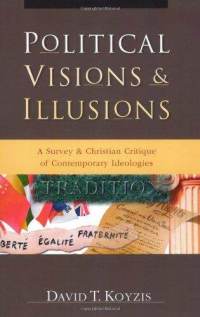 Political Visions and Illusions: A Survey & Christian Critique of Contemporary Ideologies David T. Koyzis (IVP) $20.00 Okay, I trot this out nearly every year when there are elections or political debates or if there are matters on the news that seem to exhibit the “culture wars” debates. And now is that time, for sure. It just amazes me how little most people know about the background ideas and philosophical foundations for both right and left wing writers, pundits, movements. In this complex and important book Koyzis adeptly explains where ideas come from, what liberals and conservatives really believe (or assume) and whether those guiding ideals do or do not comport with a consistently Christian worldview. How do legitimate ideas end up becoming idols and get hardened into ideologies? What are the dynamics of ideological conflict in our new century? Why does the typical “liberal vs conservative” story not really do justice to the more complex realities behind political movements? This is beyond astute, it is genius, the best and most comprehensive overview of political thinking that I know of. It uses words appropriately, explaining how political philosophers have used phrases and ideas in the past, and helps us all get a handle on what is going on in our heated civic debates. Highly recommended.
Political Visions and Illusions: A Survey & Christian Critique of Contemporary Ideologies David T. Koyzis (IVP) $20.00 Okay, I trot this out nearly every year when there are elections or political debates or if there are matters on the news that seem to exhibit the “culture wars” debates. And now is that time, for sure. It just amazes me how little most people know about the background ideas and philosophical foundations for both right and left wing writers, pundits, movements. In this complex and important book Koyzis adeptly explains where ideas come from, what liberals and conservatives really believe (or assume) and whether those guiding ideals do or do not comport with a consistently Christian worldview. How do legitimate ideas end up becoming idols and get hardened into ideologies? What are the dynamics of ideological conflict in our new century? Why does the typical “liberal vs conservative” story not really do justice to the more complex realities behind political movements? This is beyond astute, it is genius, the best and most comprehensive overview of political thinking that I know of. It uses words appropriately, explaining how political philosophers have used phrases and ideas in the past, and helps us all get a handle on what is going on in our heated civic debates. Highly recommended.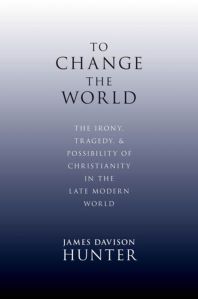 To Change the World: The Irony, Tragedy, and Possibility of Christianity in the Late Modern World James Davison Hunter (Oxford University Press) $27.95 Forgive my colloquialism but this is one brainy dude and this is one sophisticated book. Seriously, if you haven’t considered reading this, you haven’t been paying attention to BookNotes. We’ve cited it often, noted that we may not agree with it all, and assured readers that it may be one of the more important scholarly books on the sociology of social change written in our lifetime. Hunter, a thought-provoking scholar at UVA, who ends up being the guy who coined the phrase “culture wars” has garnered, not surprisingly, rave reviews from super-heavy sociological philosophers like Charles Taylor and esteemed writers like Robert Bellah who says it is “extraordinarily important.” Nicolas Wolterstorff says it is “a feat of great intellectual imagination.” Tim Keller says he learned much from it. For what it is worth he is very critical of the Christian right and the Christian Left. And just about everybody else, too, but that’s another story.
To Change the World: The Irony, Tragedy, and Possibility of Christianity in the Late Modern World James Davison Hunter (Oxford University Press) $27.95 Forgive my colloquialism but this is one brainy dude and this is one sophisticated book. Seriously, if you haven’t considered reading this, you haven’t been paying attention to BookNotes. We’ve cited it often, noted that we may not agree with it all, and assured readers that it may be one of the more important scholarly books on the sociology of social change written in our lifetime. Hunter, a thought-provoking scholar at UVA, who ends up being the guy who coined the phrase “culture wars” has garnered, not surprisingly, rave reviews from super-heavy sociological philosophers like Charles Taylor and esteemed writers like Robert Bellah who says it is “extraordinarily important.” Nicolas Wolterstorff says it is “a feat of great intellectual imagination.” Tim Keller says he learned much from it. For what it is worth he is very critical of the Christian right and the Christian Left. And just about everybody else, too, but that’s another story. 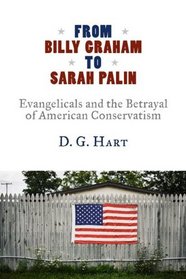 From Billy Graham to Sarah Palin: Evangelicals and the Betrayal of American Conservativsm D.G. Hart (Eerdmans) $25.00 I’m usually pretty frustrated when even well-schooled journalists don’t seem to know much about what evangelicalism is, or what creedal faith is about. As it ends up, that ain’t half of it: as half the blogs yapping about Francis Schaeffer and Michelle Bachmann and Rick Perry have implied, they don’t know what conservatism is, either. I’m not sure I do, either, after starting this very provocative and serious book which—to make a complicated story very short—says that the dynamism inherent in revivalistic evangelicalism, that wants to make the world a better place, doesn’t really lead, ultimately, to conserving much. Hart, a Paleo-at-least, finds this troubling. Authentic conservatism, he shows, is not enhanced by the likes of mega-churches rallying around the likes of Sarah Palin. I’m rubbing my head from this category-changing, mind-bending study suggesting that those evangelicals that are conservative are insufficently so in ways that really matter. Mike Cromartie of the Ethics and Public Policy Center says to get this “for your pastor and also give one to your favorite political activist. By doing so you will raise the level of theological, and political, conversation in the church.”
From Billy Graham to Sarah Palin: Evangelicals and the Betrayal of American Conservativsm D.G. Hart (Eerdmans) $25.00 I’m usually pretty frustrated when even well-schooled journalists don’t seem to know much about what evangelicalism is, or what creedal faith is about. As it ends up, that ain’t half of it: as half the blogs yapping about Francis Schaeffer and Michelle Bachmann and Rick Perry have implied, they don’t know what conservatism is, either. I’m not sure I do, either, after starting this very provocative and serious book which—to make a complicated story very short—says that the dynamism inherent in revivalistic evangelicalism, that wants to make the world a better place, doesn’t really lead, ultimately, to conserving much. Hart, a Paleo-at-least, finds this troubling. Authentic conservatism, he shows, is not enhanced by the likes of mega-churches rallying around the likes of Sarah Palin. I’m rubbing my head from this category-changing, mind-bending study suggesting that those evangelicals that are conservative are insufficently so in ways that really matter. Mike Cromartie of the Ethics and Public Policy Center says to get this “for your pastor and also give one to your favorite political activist. By doing so you will raise the level of theological, and political, conversation in the church.” 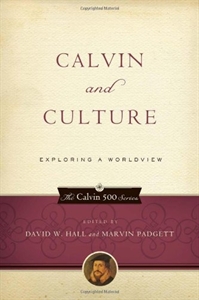 Calvin and Culture: Exploring a Worldview edited by David Hall and Marvin Padgett (P&R) $19.99 For the 500th anniversary of John Calvin this anthology was created showing how Calvin has influenced various aspects of modern life. Grounded in historical reformation-era studies, this explores how a Reformed vision has shaped the rise of the arts, business, economics, history, journalism, law, literature, medicine music, philosophy, politics and science. As reporters and pundits mock Schaeffer for his “wide as life” faith and his strict adherence to a conservative Calvinism, we all ought to know a bit about the truth of the matter. Calvinist or not (heck, whether you are a Christian or not) this kind of amazingly rich historical record is very, very helpful to know. Further, Paul Marshall—recall that I started this
Calvin and Culture: Exploring a Worldview edited by David Hall and Marvin Padgett (P&R) $19.99 For the 500th anniversary of John Calvin this anthology was created showing how Calvin has influenced various aspects of modern life. Grounded in historical reformation-era studies, this explores how a Reformed vision has shaped the rise of the arts, business, economics, history, journalism, law, literature, medicine music, philosophy, politics and science. As reporters and pundits mock Schaeffer for his “wide as life” faith and his strict adherence to a conservative Calvinism, we all ought to know a bit about the truth of the matter. Calvinist or not (heck, whether you are a Christian or not) this kind of amazingly rich historical record is very, very helpful to know. Further, Paul Marshall—recall that I started this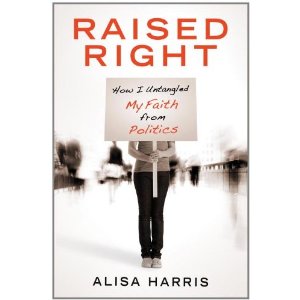 Raised Right: How I Untangled My Faith from Politics Alisa Harris (Waterbook) $14.99 I will be writing more about this when it releases in a few weeks (it is still unavailable, shipping early September 2011.) I’m almost done with my advanced copy and I’m mostly astonished at this young woman’s story, her being raised in a very active Christian right-wing family—she picketed abortion clinics as a child, holding signs that she surely couldn’t have known what they meant—and becoming active (oooh, how she was active!) in Republican politics as a teenager. This narrates how she has come to a different understanding of her faith and no small amount of serious anguish, anguish that I would guess many of us have felt. Ms Harris is a fantastic writer, making this one of those great memoirs that is easy to read, fun and well-told, and yet very memorable–what a story! Has she just shifted, as many of her twenty-something young evangelical peers have, from a right wing faith to a left wing one? Is her organizing demonstrations at the Bank of America and her advocacy for the poor, just the flip side of her still politicized faith? As she untangles and rethinks things, she lets us look over her shoulder, watch as her rather exciting New York life unfolds, and we get to be a part of the religious coming of age of a very sharp young woman, who is a reporter and very fine writer. I suggest that the story isn’t over and I predict she will write more. I hope so. This is, in many ways, what this whole crazy New Yorker bigotry about Bachmann and the “exotic” nature of the Christian right is all about. It guess it is rather exotic, as is anyone who takes faith seriously these days, and lives out her principles in public ways. Harris’ conservative family has done this, and it has left its marks, in ways that are good and maybe not so good. One story, one family, one very thoughtful twenty-something. I could hardly put this book down and trust you find pleasure, empathy and insight, regardless of your thoughts about faith, politics, or social justice.
Raised Right: How I Untangled My Faith from Politics Alisa Harris (Waterbook) $14.99 I will be writing more about this when it releases in a few weeks (it is still unavailable, shipping early September 2011.) I’m almost done with my advanced copy and I’m mostly astonished at this young woman’s story, her being raised in a very active Christian right-wing family—she picketed abortion clinics as a child, holding signs that she surely couldn’t have known what they meant—and becoming active (oooh, how she was active!) in Republican politics as a teenager. This narrates how she has come to a different understanding of her faith and no small amount of serious anguish, anguish that I would guess many of us have felt. Ms Harris is a fantastic writer, making this one of those great memoirs that is easy to read, fun and well-told, and yet very memorable–what a story! Has she just shifted, as many of her twenty-something young evangelical peers have, from a right wing faith to a left wing one? Is her organizing demonstrations at the Bank of America and her advocacy for the poor, just the flip side of her still politicized faith? As she untangles and rethinks things, she lets us look over her shoulder, watch as her rather exciting New York life unfolds, and we get to be a part of the religious coming of age of a very sharp young woman, who is a reporter and very fine writer. I suggest that the story isn’t over and I predict she will write more. I hope so. This is, in many ways, what this whole crazy New Yorker bigotry about Bachmann and the “exotic” nature of the Christian right is all about. It guess it is rather exotic, as is anyone who takes faith seriously these days, and lives out her principles in public ways. Harris’ conservative family has done this, and it has left its marks, in ways that are good and maybe not so good. One story, one family, one very thoughtful twenty-something. I could hardly put this book down and trust you find pleasure, empathy and insight, regardless of your thoughts about faith, politics, or social justice. 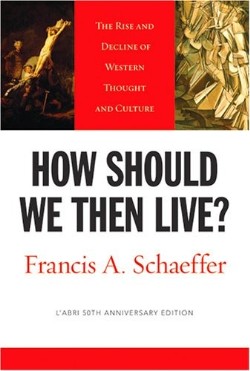 Here you can find a
Here you can find a 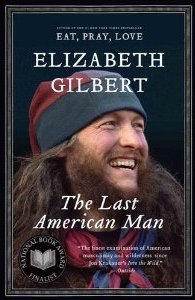 The Last American Man Elizabeth Gilbert (Penguin) $15.00 I have admitted often that we loved Eat Pray Love, and while we obviously have a different understanding of truth, God, the faith experience, and romance, we adored this wise and often hilarious travelogue. Even her section about the Ashram was beautifully rendered. How would you narrate your encounter with the sublime, the Divine? Well, that fun book led us to Committed, her history and sociology of marriage, written very much as a sequel to EPL, telling of her reluctance to marry the man she met and feel in love with in Bali. Despite some opinions that seem wrong-headed, it was a nearly brilliant book, and Beth and I both devoured it. On a roll, then, I took up her first book, The Last American Man and Beth immediately followed suit (since I wouldn’t shut up talking about it every night) and I cannot even tell you how this book rocked our world! We both zipped through it, laughing and rubbing our foreheads and shaking our heads and staying up late, awestruck. Beth loaned it to a friend before I could; it is that kind of book.
The Last American Man Elizabeth Gilbert (Penguin) $15.00 I have admitted often that we loved Eat Pray Love, and while we obviously have a different understanding of truth, God, the faith experience, and romance, we adored this wise and often hilarious travelogue. Even her section about the Ashram was beautifully rendered. How would you narrate your encounter with the sublime, the Divine? Well, that fun book led us to Committed, her history and sociology of marriage, written very much as a sequel to EPL, telling of her reluctance to marry the man she met and feel in love with in Bali. Despite some opinions that seem wrong-headed, it was a nearly brilliant book, and Beth and I both devoured it. On a roll, then, I took up her first book, The Last American Man and Beth immediately followed suit (since I wouldn’t shut up talking about it every night) and I cannot even tell you how this book rocked our world! We both zipped through it, laughing and rubbing our foreheads and shaking our heads and staying up late, awestruck. Beth loaned it to a friend before I could; it is that kind of book. 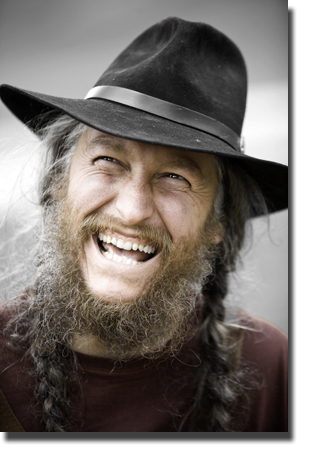 super-strict, nearly abusive father who ends up living in a teepee, knowing the ways of Native customs the world over and thereby living a “back to nature” ideology that stood as a firm rebuke to the materialism and superficiality and alienation of American culture. This fellow–Eustace Conway from North Carolina–is a natural outdoorsman, woodsman, hunter, self-taught carpenter, a born storyteller, a manic visionary who builds his own homestead, starts a nature center for guests that flock to him in nearly cult-like passion, becomes one of the finest horsemen in America, and longs to be happy with a hippy-chick Earth Mother, pioneer woman wife, a hope that for reasons that become clear, ain’t gonna happen any time soon. Alas, he’s a troubled soul, gifted, rugged, stubborn, a Dreamer Like No Other, tenacious, hardworking, and not a little bit magnetic.
super-strict, nearly abusive father who ends up living in a teepee, knowing the ways of Native customs the world over and thereby living a “back to nature” ideology that stood as a firm rebuke to the materialism and superficiality and alienation of American culture. This fellow–Eustace Conway from North Carolina–is a natural outdoorsman, woodsman, hunter, self-taught carpenter, a born storyteller, a manic visionary who builds his own homestead, starts a nature center for guests that flock to him in nearly cult-like passion, becomes one of the finest horsemen in America, and longs to be happy with a hippy-chick Earth Mother, pioneer woman wife, a hope that for reasons that become clear, ain’t gonna happen any time soon. Alas, he’s a troubled soul, gifted, rugged, stubborn, a Dreamer Like No Other, tenacious, hardworking, and not a little bit magnetic. 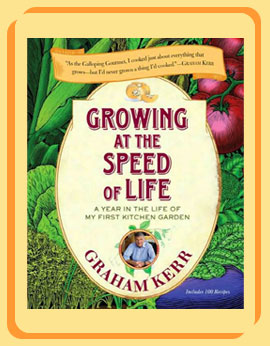 Growing at the Speed of Life: A Year in the Life of My First Kitchen Garden Graham Kerr (Perigree) $27.00 Speaking of characters, Graham Kerr was in many ways a caricature of much of what Eustace Conway despised. He was tony, un-serious, wasteful, on TV. Those who grew up when I did knew him as the Galloping Gourmet, the predecessor of all those characters now on the Food Channel, brilliant, British and way too giddy. Except he drank and drank as he showed his gourmet dishes, turned into an on-air alcoholic. During those years he was mockingly awarded the “Broken Wooden Spoon” by Weight Watchers International, who called him Public Enemy Number 1 because of his bad culinary choices.
Growing at the Speed of Life: A Year in the Life of My First Kitchen Garden Graham Kerr (Perigree) $27.00 Speaking of characters, Graham Kerr was in many ways a caricature of much of what Eustace Conway despised. He was tony, un-serious, wasteful, on TV. Those who grew up when I did knew him as the Galloping Gourmet, the predecessor of all those characters now on the Food Channel, brilliant, British and way too giddy. Except he drank and drank as he showed his gourmet dishes, turned into an on-air alcoholic. During those years he was mockingly awarded the “Broken Wooden Spoon” by Weight Watchers International, who called him Public Enemy Number 1 because of his bad culinary choices. starting line and run the whole race from the beginning.” And what a book it is. Whether you are an armchair gardener or an active one, whether you are a foodie or a newbie in thinking about whole foods and organic eating, this book is for you. It includes his story, lots of sidebars and illustrations, and over 100 recipes, all taken directly from Kerr’s family garden. The illustrations are especially nice, pencil and ink line drawings that conjure up images of the Moosewood
starting line and run the whole race from the beginning.” And what a book it is. Whether you are an armchair gardener or an active one, whether you are a foodie or a newbie in thinking about whole foods and organic eating, this book is for you. It includes his story, lots of sidebars and illustrations, and over 100 recipes, all taken directly from Kerr’s family garden. The illustrations are especially nice, pencil and ink line drawings that conjure up images of the Moosewood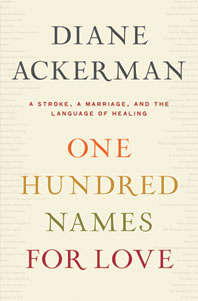 One Hundred Names for Love: A Stroke, A Marriage, and the Language of Healing Diane Ackerman (Norton) $26.95 This is one of those books that just feels good to hold, a touch heavy, well bound, a delight that deserves such a solid presentation as it is gloriously written, full of grace and gravity. By the best-selling author of The Zookeepers Wife, the very important classic of naturalist literature, The Natural History of the Senses, and a dozen others, this is a passionate and intimate study of her husband’s life-changing stroke. Ironically, she was out on a book tour for her just-published book, The Alchemy of the Mind, which was an work on brain studies, when West had his stroke. Many have said this is Ackerman’s best writing yet, and her best book to date. She deftly explains in neurological detail the complexities of the human brain, but, more, the complexities of human sorrow and heartrending love. (It is hard for anyone, of course, to suffer aphasia, but to have such an articulate wordsmith–her husband is an esteemed novelist– lose language in such a way, and to have such an informed writer as a spouse, is especially poignant.)
One Hundred Names for Love: A Stroke, A Marriage, and the Language of Healing Diane Ackerman (Norton) $26.95 This is one of those books that just feels good to hold, a touch heavy, well bound, a delight that deserves such a solid presentation as it is gloriously written, full of grace and gravity. By the best-selling author of The Zookeepers Wife, the very important classic of naturalist literature, The Natural History of the Senses, and a dozen others, this is a passionate and intimate study of her husband’s life-changing stroke. Ironically, she was out on a book tour for her just-published book, The Alchemy of the Mind, which was an work on brain studies, when West had his stroke. Many have said this is Ackerman’s best writing yet, and her best book to date. She deftly explains in neurological detail the complexities of the human brain, but, more, the complexities of human sorrow and heartrending love. (It is hard for anyone, of course, to suffer aphasia, but to have such an articulate wordsmith–her husband is an esteemed novelist– lose language in such a way, and to have such an informed writer as a spouse, is especially poignant.)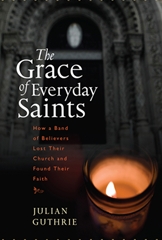 The Grace of Everyday Saints: How a Band of Believers Lost Their Church and Found Their Faith Julian Guthrie (Houghton, Mifflin, Harcourt) $25.00 I do not know what first drew us to stock this, perhaps it was the advanced blurbs by award-winning reporter Ken Auletta (“a gem of a book”) or activist scholar James Carroll (“moving and eloquent”) or Beth Kephart, herself a brave and good writer we admire who says it is “brave and engrossing.” Perhaps the story itself piqued our interest as it is not uncommon, even here—a Catholic Diocesan decision calls for the closing of a church and the folk in the parish are left to their sorrow. In this case, the good people of the exiled congregation of St Brigid do not give up their church, find a renegade lawyer and take their prayers to the streets and the courts. What a saga, as they enduring in their campaign. In their holy revolt, as Carroll puts it, “resistance and reverence open to one another.” In their work they learn more than they want to know–you’ve heard about the coverups of abuse in the Church, so you can imagine—and enter an awful battle pursing truth and finding faith, all the while insisting that their faith can keep them going, pressing on against all set-backs. As Kephart puts it, “This is the story of a candle that burned on the steps of a fabled, shuttered church and the people who kept that flame—and their own faith—alive. What is sacred? Who can be trusted? Can communities save us when hierarchies cannot? This brave and engrossing book seeks answers. It sanctifies a truly moving quest.”
The Grace of Everyday Saints: How a Band of Believers Lost Their Church and Found Their Faith Julian Guthrie (Houghton, Mifflin, Harcourt) $25.00 I do not know what first drew us to stock this, perhaps it was the advanced blurbs by award-winning reporter Ken Auletta (“a gem of a book”) or activist scholar James Carroll (“moving and eloquent”) or Beth Kephart, herself a brave and good writer we admire who says it is “brave and engrossing.” Perhaps the story itself piqued our interest as it is not uncommon, even here—a Catholic Diocesan decision calls for the closing of a church and the folk in the parish are left to their sorrow. In this case, the good people of the exiled congregation of St Brigid do not give up their church, find a renegade lawyer and take their prayers to the streets and the courts. What a saga, as they enduring in their campaign. In their holy revolt, as Carroll puts it, “resistance and reverence open to one another.” In their work they learn more than they want to know–you’ve heard about the coverups of abuse in the Church, so you can imagine—and enter an awful battle pursing truth and finding faith, all the while insisting that their faith can keep them going, pressing on against all set-backs. As Kephart puts it, “This is the story of a candle that burned on the steps of a fabled, shuttered church and the people who kept that flame—and their own faith—alive. What is sacred? Who can be trusted? Can communities save us when hierarchies cannot? This brave and engrossing book seeks answers. It sanctifies a truly moving quest.”  Home: A Short History of an Idea Witold Rybczynski (Penguin) $16.00 I’ve been wanting to pick this up for years—we’ve had it in our homemaking section and in our architecture section—and just never got to it. I knew I had heard amazing things about it, and of course knew his other greatly esteemed books, mostly about appropriate technology, the one that is a “natural history of the screwdriver”, and several good books about architecture and buildings and city life, not to mention the best-selling A Clearing In The Distance: Frederick Law Olmsted and America in the 19th Century.) Rybczynski is a learn
Home: A Short History of an Idea Witold Rybczynski (Penguin) $16.00 I’ve been wanting to pick this up for years—we’ve had it in our homemaking section and in our architecture section—and just never got to it. I knew I had heard amazing things about it, and of course knew his other greatly esteemed books, mostly about appropriate technology, the one that is a “natural history of the screwdriver”, and several good books about architecture and buildings and city life, not to mention the best-selling A Clearing In The Distance: Frederick Law Olmsted and America in the 19th Century.) Rybczynski is a learn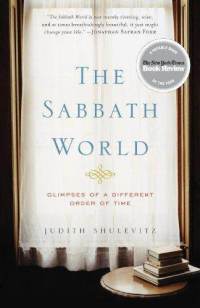 The Sabbath World: Glimpses of a Different Order of Time Judith Shulevitz (Random House) $15.00 Again, I often held the handsome hardback of this well-reviewed book over the last year but never got around to reading more than a few random pages. I swore I’d take time to care for it, but, of course, a book like this dare not be read in haste, so never got to it. I was glad when it came out in paperback, a nice trim edition.
The Sabbath World: Glimpses of a Different Order of Time Judith Shulevitz (Random House) $15.00 Again, I often held the handsome hardback of this well-reviewed book over the last year but never got around to reading more than a few random pages. I swore I’d take time to care for it, but, of course, a book like this dare not be read in haste, so never got to it. I was glad when it came out in paperback, a nice trim edition.  take in some lovely words, some sharp thinking–informed by literature, social history and healthy spirituality, brought to you in lines and paragraphs of sheer beauty.
take in some lovely words, some sharp thinking–informed by literature, social history and healthy spirituality, brought to you in lines and paragraphs of sheer beauty. 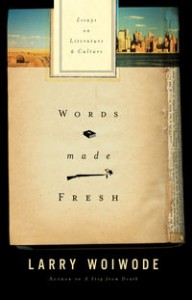 Years later, Mr. Woiwode remains a Christian, has deepened and widened intellectually, and is respected as a novelist and perhaps more so as essayist and critic. He has written poetry, a book-length Bible reflection, a memoir which gathered great reviews Words Made Fresh: Essays on Literature and Culture (Crosway; $24.99) is a brand new and very handsome hardback volume collecting some of his well-crafted essays, spanning his career, mostly about literature.
Years later, Mr. Woiwode remains a Christian, has deepened and widened intellectually, and is respected as a novelist and perhaps more so as essayist and critic. He has written poetry, a book-length Bible reflection, a memoir which gathered great reviews Words Made Fresh: Essays on Literature and Culture (Crosway; $24.99) is a brand new and very handsome hardback volume collecting some of his well-crafted essays, spanning his career, mostly about literature. 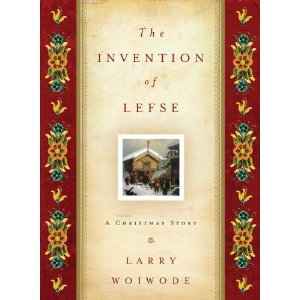 orthodox faith applied robustly to the culture at large. They do good work, of course, and, in fact, published a version of the controversial Woiwode novel that was panned by the literati. Yet, this new book is so beyond the scope of the typical “Christian Booksellers Association” release that it is breathtaking to see it published by Crossway. Kudos to them, I guess. (And kudos that they will publish early this fall a new hardback Christmas novella by Mr. Woiwode, to be called The Invention of Lefse: A Christmas Story; $12.99. You can pre-order it now, if you’d like, at the BookNotes discount, below.)
orthodox faith applied robustly to the culture at large. They do good work, of course, and, in fact, published a version of the controversial Woiwode novel that was panned by the literati. Yet, this new book is so beyond the scope of the typical “Christian Booksellers Association” release that it is breathtaking to see it published by Crossway. Kudos to them, I guess. (And kudos that they will publish early this fall a new hardback Christmas novella by Mr. Woiwode, to be called The Invention of Lefse: A Christmas Story; $12.99. You can pre-order it now, if you’d like, at the BookNotes discount, below.) 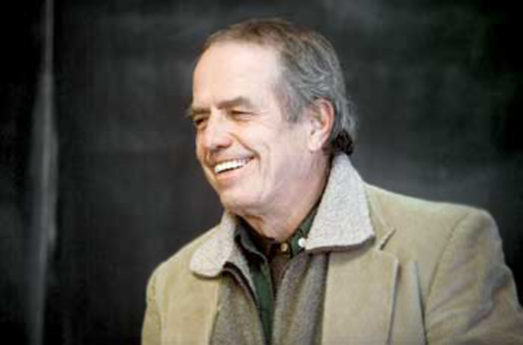 The work’s illuminating Christian influence is most often implicit, covert, as it were. He does not wear his faith on his sleeve, except when he does. And even then, it is lucid, poetic, demanding, classic (perhaps bringing to mind the great essays by Calvin scholar and Nobel Prize winning novelist, Marilyn Robinson.) Many, many serious writers have endorsed Woiwode’s work, from Charles Johnson (Middle Passages) to Brett Lott (who says of him “there is perhaps no better writer at work in America today…his books are built to last”) to Sven Birkerts to Jill Pelaez Baumgaertner. Gregory Wolfe, author of the recent Beauty Will Save the World: Recovering the Human in an Ideological Age (ISI; $29.95) is one of our best critics and he says “Larry Woiwode’s prose is so piercing and precise, so concrete and muscular, that I would read his reflections on the price of potatoes. In an era when words have become weapons or commodities, Woiwode reminds us that they can still become flesh and blood, full of grace and truth.”
The work’s illuminating Christian influence is most often implicit, covert, as it were. He does not wear his faith on his sleeve, except when he does. And even then, it is lucid, poetic, demanding, classic (perhaps bringing to mind the great essays by Calvin scholar and Nobel Prize winning novelist, Marilyn Robinson.) Many, many serious writers have endorsed Woiwode’s work, from Charles Johnson (Middle Passages) to Brett Lott (who says of him “there is perhaps no better writer at work in America today…his books are built to last”) to Sven Birkerts to Jill Pelaez Baumgaertner. Gregory Wolfe, author of the recent Beauty Will Save the World: Recovering the Human in an Ideological Age (ISI; $29.95) is one of our best critics and he says “Larry Woiwode’s prose is so piercing and precise, so concrete and muscular, that I would read his reflections on the price of potatoes. In an era when words have become weapons or commodities, Woiwode reminds us that they can still become flesh and blood, full of grace and truth.” 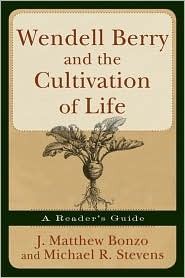 Bonzo and Michael Stevens is Wendell Berry and the Cultivation of Life: A Readers Guide (Brazos; $22.00) which is a great, great, book-length introduction. There are two more spectacular anthologies about Berry that have come out recently, both by University of Kentucky Press, and each are so good I could cry.
Bonzo and Michael Stevens is Wendell Berry and the Cultivation of Life: A Readers Guide (Brazos; $22.00) which is a great, great, book-length introduction. There are two more spectacular anthologies about Berry that have come out recently, both by University of Kentucky Press, and each are so good I could cry. 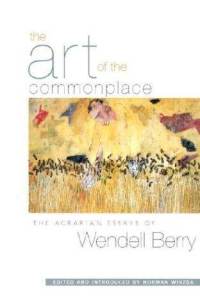 renowned (I think The Unsettling of America, publ
renowned (I think The Unsettling of America, publ them in the procedure called perfect binding, which Woiwode slyly calls imperfect binding) and why acid free paper is so important. He notes their effort to issue his work in uniform editions. This, he astutely observes, is an “organized and sympathetic overview which in the past was a publisher’s way of indicating confidence in the writer’s future.” And he laments the plight of the indie publishers, noting those that went belly up or were bought out, now run by the aforementioned television corporations and oil companies. Anyway, it’s a good couple of pages that are a good tribute to publishers who try to do things well, especially apropos for an author who does things well, like Berry, like Woiwode. He ends this chapter, and the afterward about book binding, like this,
them in the procedure called perfect binding, which Woiwode slyly calls imperfect binding) and why acid free paper is so important. He notes their effort to issue his work in uniform editions. This, he astutely observes, is an “organized and sympathetic overview which in the past was a publisher’s way of indicating confidence in the writer’s future.” And he laments the plight of the indie publishers, noting those that went belly up or were bought out, now run by the aforementioned television corporations and oil companies. Anyway, it’s a good couple of pages that are a good tribute to publishers who try to do things well, especially apropos for an author who does things well, like Berry, like Woiwode. He ends this chapter, and the afterward about book binding, like this,